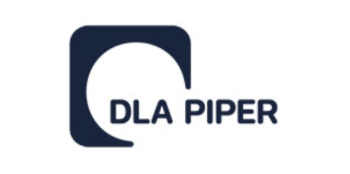Early this year, in a brief window between Storm Dennis and the Coronavirus lockdown, the video games community met up in Cannes for Esports BAR. The French trade show, and its US twin in Miami, have rapidly become go-to events in an esports sector which, though hardly new, certainly still seeks further maturity. “It’s always waiting for the next level” an analyst at one of the big consultancy firms observed to me, when presenting their annual media and technology predictions earlier in the year. They had given up on predicting when exactly that break-through development would likely appear, and maybe not in 2020. But they could not have predicted the current lockdown and its impact. Across the globe for many weeks, pretty much the only organised sport being played out has been esport - from virtual horses in a Virtual Grand National to the tennis pros swapping racquets for consoles in a digital Madrid Open. So is esports now levelling up?
At Esports BAR, the debate had taken a familiar form: what could and should the on-going relationship between esports and other sport be - and how does that impact on the commercial and contractual arrangements for both? There are many aspects to that inter-relationship, my colleague Nick Fitzpatrick analyses some of the key legal and regulatory issues in the article, and for several years already high profile link-ups like the Premier League’s ePL or PSG’s esports team have lead the way. But it was forward-looking financial fundamentals that were the subject of that debate. Any sport, to a lesser or greater degree, essentially generates four main sources of cash: from audiences via gate receipts and merchandise; from the sport itself in prize money or player transfers; from broadcast and media rights sales; and from advertising and sponsorship revenue. In Cannes, leading figures in esports were assessing how far and how fast these could grow in the European market.
Fan engagement at esport tournaments is no less passionate (nor any less keen to be so in replica kit) than at any other sports events, but there was a recognition that building a physical infrastructure to support expansion will require serious further investment and a long term focus. Which in turn likely requires an esports landscape codified beyond current regimes. Europe does not generally have the franchised sector structure of sport in the US, or elsewhere, but this was felt to be less of a factor than internal pressure from, or at least an understandable caution of, publishers and other stakeholders. What’s more, the esports teams compete with the world of streaming in their demand for talent. The two can (and probably must) co-exist for their mutual benefit, and different skills are required of successful streamers and influencers, but highly lucrative short term rewards for those skills are a significant draw. In any event, the immediate focus is around online audiences rather than a share of traditional sports media rights.
Accordingly one of the most pressing concerns, pre-lockdown, seemed to be the generation of improved advertising and sponsorship propositions sparking up-scale engagement with better brands and bigger impact. 2019 had certainly seen some impressive steps forward, although with Europe lagging behind the US. The question was whether, beyond the obvious endemic brand partners in performance drinks, fast food and computer hardware, other significant names could be consistently attracted into the industry. Not a necessarily straightforward task in an already crowded media and entertainment market where sceptical brand managers can be disturbed by weaponry and violence, even in a fantasy settings. It was felt that some “mind shifting” on the part of audiences and marketeers alike would still be needed to win round those all-important non-endemic brands. Then came Coronavirus and lockdown.
With worldwide sports events – from the Olympics down – on hold, and no clear commitments on resumption, the mainstream media headlines were promoting esports as never before. Seemingly with each sporting cancellation a mirror report detailed a virtual replacement. As the BBC had it, competitive gaming was on the rise “as lockdown flips sport on its head”. If audiences and marketeers had never considered the potential of esports before they could hardly avoid it now. Suddenly BMW was announcing an intention to become a major global player in esports, partnering with five leading teams across the US, Europe and Asia, asserting a goal to grow the team portfolio into “true household names” within the general sports and entertainment industry. This was not just about sponsoring the current top teams but a commitment to becoming a catalyst for the introduction of esports to new and wider audiences.
And yet. It is important to recognise that the BMW deal is a culmination of several years of previous engagement alongside a range of other deals with other automotive brands. Further, whatever the streaming successes online, esports has faced its own lockdown challenges and cancelled events. And there is no guarantee that other major brands will follow, regardless of how current circumstances develop. If everything “flips back”, esports must retain its place alongside returning sports. Of course, there are currently precious few certainties about a post-Coronavirus future with many challenges well beyond the world of sport. That unavoidable reality aside, the same financial fundamentals and development requirements for esports, as discussed in Cannes, will surely still exist and need to be addressed when lockdown eases and other sporting action finally resumes. For esports this is a marathon not a sprint.



